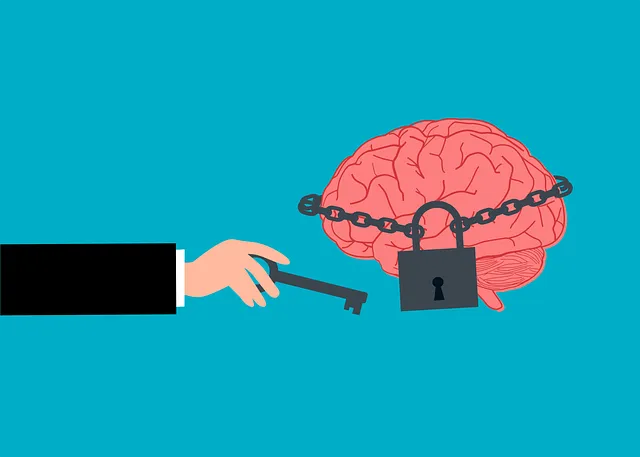Crisis Intervention Teams (CITS) at Littleton Kaiser Permanente swiftly address mental health crises through specialized services. These teams provide immediate de-escalation, short-term treatment, and long-term care access, facilitating emotional healing. Training programs emphasize Mind Over Matter principles, resilience building, and effective decision-making for various crises. Mental Health Policy Analysis and Advocacy ensures participants understand relevant resources. Integrating education into podcast series and analyzing mental health appointment data enhance crisis handling skills, leading to improved patient outcomes. The holistic approach of Littleton Kaiser Permanente, including self-awareness exercises and burnout prevention strategies, contributes to team resilience and effective collaboration.
Crisis intervention team (CIT) training programs are essential components of effective crisis management, equipping professionals with the skills to handle high-risk situations. This article delves into the critical role of CITs and explores how comprehensive training, such as that offered by Littleton Kaiser Permanente, integrating mental health appointment numbers, enhances their effectiveness. We examine the fundamental overview of CITs, highlighting why training is crucial for successful crisis management in healthcare settings.
- Understanding Crisis Intervention Teams: A Fundamental Overview
- The Role of Training in Effective Crisis Management
- Littleton Kaiser Permanente's Approach to Mental Health Appointment Number Integration in Team Training
Understanding Crisis Intervention Teams: A Fundamental Overview

Crisis Intervention Teams (CITS) are specialized groups designed to respond to individuals experiencing a mental health crisis. These teams typically include trained professionals such as psychologists, social workers, and emergency medical services personnel. The primary goal of CITS is to provide immediate, effective support, aiming to de-escalate situations, offer short-term treatment, and facilitate access to long-term care, ensuring emotional healing processes can begin.
Littleton Kaiser Permanente, for instance, offers mental health appointment numbers dedicated to CIT services. Such programs are crucial in fostering resilience building among individuals facing psychological distress. Through collaborative efforts, CITS members work together to assess the crisis, implement interventions, and connect the person in need with appropriate resources, be it through self-awareness exercises or further medical evaluation. This immediate and tailored response can significantly impact positive outcomes in emotional healing processes.
The Role of Training in Effective Crisis Management

Effective crisis intervention requires well-prepared and skilled professionals. Training plays a pivotal role in equipping individuals to handle various crises, from personal trauma to large-scale disasters. Programs like those offered by Littleton Kaiser Permanente focus on instilling Mind Over Matter Principles, fostering resilience, and promoting swift and accurate decision-making. These initiatives ensure that when faced with a mental health emergency, be it during a routine Kaiser Permanente mental health appointment or in unforeseen circumstances, the team is prepared to deliver compassionate and competent care.
The Mental Health Policy Analysis and Advocacy aspect of crisis intervention training equips participants with knowledge about relevant policies and resources, enabling them to navigate complex systems effectively. Moreover, integrating these training programs into a regular Mental Wellness Podcast Series Production can enhance learning, making it more engaging and accessible. Through continuous education and practice, teams become better equipped to handle crises, ultimately leading to improved outcomes for those in need.
Littleton Kaiser Permanente's Approach to Mental Health Appointment Number Integration in Team Training

Littleton Kaiser Permanente takes a holistic approach to crisis intervention team training by integrating mental health appointment numbers into their program. This unique strategy allows them to assess and optimize team performance in real-world scenarios, ensuring that healthcare providers are well-prepared to handle high-stress situations. By examining the number of mental health appointments handled by each team member, the organization can identify potential areas for improvement and tailor burnout prevention strategies accordingly.
The program emphasizes self-awareness exercises to help healthcare providers reflect on their emotional responses during crisis interventions. Additionally, they incorporate conflict resolution techniques that promote effective communication within the team, fostering a collaborative environment. This comprehensive training model not only equips teams with practical skills but also enhances their resilience in navigating challenging situations, ultimately contributing to improved patient outcomes.
Crisis intervention team training programs, such as those modeled by Littleton Kaiser Permanente through their integration of mental health appointment numbers, play a vital role in enhancing community well-being. By equipping teams with effective crisis management strategies, these programs ensure that individuals facing crises receive prompt, compassionate, and competent support. This holistic approach not only alleviates immediate distress but also fosters long-term resilience and recovery. As we navigate the complex landscape of mental health care, such innovative training models are essential to building strong, resilient communities.






